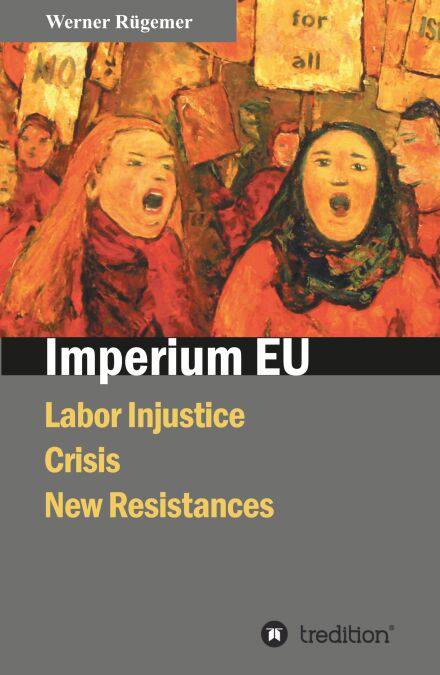
- Afhalen na 1 uur in een winkel met voorraad
- Gratis thuislevering in België vanaf € 30
- Ruim aanbod met 7 miljoen producten
- Afhalen na 1 uur in een winkel met voorraad
- Gratis thuislevering in België vanaf € 30
- Ruim aanbod met 7 miljoen producten
Zoeken
€ 6,99
+ 6 punten
Uitvoering
Omschrijving
Since the end of World War II, the European Union has been a joint creation of the victorious USA and Western European corporations, banks and newly founded Christian, then also conservative, liberal and increasingly also social democratic parties. The institutional consolidation since the preliminary stages in the 1950s was characterized by the military and economic dual character: first by NATO and the Marshall Plan, later by the parallel "eastward expansion" of NATO and membership in the EU. The ever-expanding capital bureaucracy in the founding states of Luxembourg and Belgium (Commission, Parliament, judiciary, agencies, NATO headquarters) promotes private capitalist interests through privatization, subsidies, directives, court rulings, international treaties. Labor rights are deeply below the standard of Universal Human Rights and the International Labor Organization ILO. In particular, collective labor rights such as for unions and employee representation are not promoted. Thus, not only the EU member states, but also associated and candidate states have become a vast resource for low-wage labor for Western subcontracting services (automotive, pharmaceutical, retail, digital services) and growing, often illegal, migrant labor (truck drivers, construction workers, doctors, nurses, home care, prostitution, seasonal agricultural labor). What is covered up in the leading media: In all 28 EU states (also England before Brexit) and associated states many spontaneous as well as organized defensive struggles are taking place: For the first time in this book they are presented with examples from 12 states.
Specificaties
Betrokkenen
- Auteur(s):
- Illustrator(s):
- Uitgeverij:
Inhoud
- Aantal bladzijden:
- 288
- Taal:
- Engels
Eigenschappen
- Productcode (EAN):
- 9783347372696
- Verschijningsdatum:
- 1/09/2021
- Uitvoering:
- E-book
- Beveiligd met:
- Digital watermarking
- Formaat:
- ePub

Alleen bij Standaard Boekhandel
+ 6 punten op je klantenkaart van Standaard Boekhandel
Beoordelingen
We publiceren alleen reviews die voldoen aan de voorwaarden voor reviews. Bekijk onze voorwaarden voor reviews.











